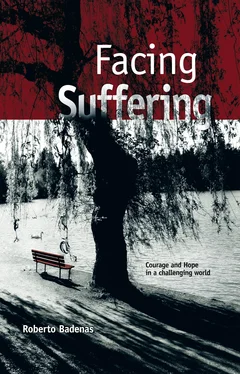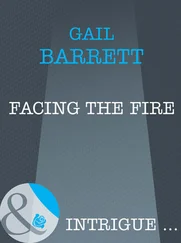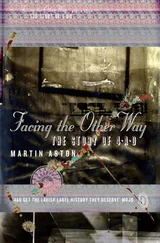Recounting your sorrows, writing them down to feel heard, talking about your illnesses and surgeries, is part of a real therapy. Who hasn’t ever noted the expressions of satisfaction or relief on older women’s faces when share stories with others about their surgeries, childbirths, or illnesses?
But many of us have been taught to reject the best channels for releasing pain. Someone didn’t know how to tell us that at the right time tears are an undeniable relief. And there are countless people who go through life without even venturing to share their sorrows with those with whom they should share them. Because of their personality, because of their upbringing, they think that sharing their problems with someone else is a weakness. Or, because of the nature of their problems, they are ashamed to share them. They ignore the fact that sharing what they feel with someone they trust could help them to see more clearly and release negative emotions, especially if that person is a professional who can provide solutions for their personal situation.
Just being listened to and finding our suffering reflected in the stories of others, such as in support groups, helps us to feel less isolated and to better understand our situation. Upon realizing that others share our problems, and even suffer and struggle as much or more than we do, it is easier for us to gain perspective on our own pain and cope with it. In reality, “people who do not find a way to express their suffering run the risk of being destroyed by it […]. Without the possibility of communicating with others, change is not possible. Remaining silent, shutting oneself off from relating to others, is death.”2
The courage to cry
When emotions overcome us, sometimes we cannot hold back the tears. Although tradition reminds us in many parts that “big boys don’t cry,” all human beings, including men, feel the imperative need to cry at some time or another. We are designed to cry: crying is natural.
It is true that, in some societies, those gentlemen who cannot hold back their tears in the face of sorrow are still treated as weak and unmanly. But attitudes are changing, and today we see more and more men who have the courage to cry in public, something that would have been unthinkable only a few years ago. There are some men who look too brave and masculine to cry, like when the volunteer firemen in Haiti rescued a boy from the rubble of the earthquake in 2010, when the soccer player Iker Casillas won the World Cup in South Africa that same year, or when tennis player Roger Federer lost the Australian Open in 2009. From pain, sorrow, or joy, we all need to cry sometimes.3 Some hold it in, others cannot. Crying is natural, and it is part of our body language to express our extreme emotions. Our reaction to the need to cry is cultural and depends largely on our education.
The language of pain
The language of pain is complex and ambiguous. If pain compels us to complain, there is the paradox that, when we try to explain our suffering, few of us know how, including those who suffer most. Our response to pain is, for the most part, learned. It depends mostly on personal context and culture. So, the great tennis player Rafael Nadal, after an epic game against the equally famous Novak Djokovic, claimed to have “enjoyed suffering.”
For millennia the language of pain was tinged with religious and philosophical connotations. But with the advent of scientific medicine, our modern societies refer to disease with more and more secular terminology. When facing illness, pain, and death, a growing number of our contemporaries no longer rely on spirituality; instead, they turn almost exclusively to science and public services in which they have placed their remaining faith. In place of the undeniable benefit of meditation or prayer, they prefer immediate, technical solutions. So the management of these quite personal realities is passing from the existential to healthcare, as if they fell to the social healthcare system in the first place.
In other times periods or latitudes everyone has had to live with the elderly, the sick, and the dying. In our environment the attention to those who suffer has become so socialized and technical that the majority of our citizens have almost no contact with the final stages of life until it affects them directly. Hospitals and mortuaries keep the sick and the dead separated from the healthy and the living. One of the most immediate consequences is that today very few of our contemporaries are emotionally prepared for a personal encounter with suffering, and even fewer still have adequate words to express their pain or to communicate with those who are suffering. We don’t know what to say in painful situations, for the simple reason that we have never faced them and we haven’t learned from family tradition what to do in these cases.
Not even medical terminology has found a way to adequately express the level of pain we experience. We don’t know how to describe our own suffering, and when we try we often find that we cannot go beyond a superficial communication, because we are unfamiliar with the language that pertains to it. Hardly anyone speaks of those things in a society that maintains the illusion that it is entitled to avoid every inconvenience. This amplifies the feeling of a lack of understanding of those who are suffering, including with those people they trust.
At the doctor’s office, the physician uses scientific medical terminology that leaves the patients unsatisfied because they do not understand it, but it protects the professional from uncomfortable questions from the patient and family, in case they begin to ask profound existential questions to which the physician often does not have an answer.
Our growing confidence in science is accompanied by a growing fear of the effects of disease and of the power of health professionals. So pain not only grips us with a sense of helplessness, but often it also leaves us without words. And this silence adds the weight of loneliness to our suffering.
The right to be happy
The situation becomes more complicated in our societies because the media have convinced us that we should all be happy. Although no one guarantees us the right to happiness, we are frequently bombarded with advertising that says happiness is within everyone’s reach, immediate and with minimal effort. But it’s one thing to have the right to pursue happiness and it is another to try to get it, no less, by buying a car, a house, or an insurance policy. Reality does not always conform to our wishes, and making our happiness dependent upon the things we have or the people who surround us is a sad illusion. As much as this and that can contribute to our moods, in the case of subjective experiences, the roots of happiness are planted in our attitudes, in our inner being.
This explains why, even if we are able to avoid many problems, we continue to feel unhappy. Not suffering does not mean being happy. Our inevitable clashes with reality poison our existence, laying waste to the small patches of happiness—passing and ephemeral—that are within our reach. All too often events are not responsible for our discomfort, but the interpretation and the attitude that we take toward them.4
To prevent a lot of avoidable unhappiness we would have to learn to accept things as they come to us, and the rest as they are.5 Acceptance does not mean resigning ourselves to reality, rather, recognizing its existence and reacting intelligently and positively in the face of it. Living is not an easy matter. So, instead of fearing that our happiness is running out, it is easier to fear that it never begins. Someone once said, with a bit of humor, that “looking on the bright side of life won’t damage your eyesight.” Therefore, considering the large amount of pain that already exists in the world, our best option is to look more on the bright side, to try to help and even smile—if possible—even though we are hurting. Because every minute wasted on negative thoughts is a minute of life that we cannot get back.
Читать дальше












